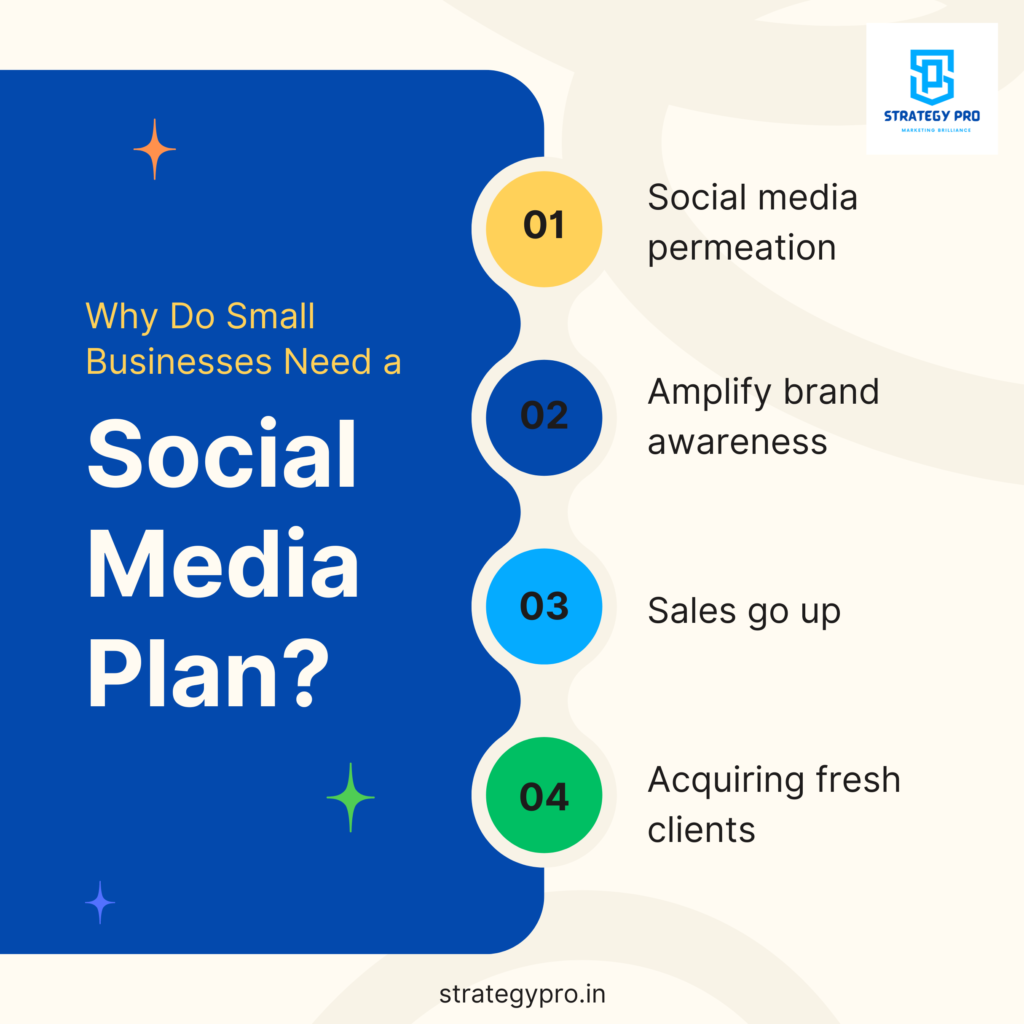
Crafting a Social Media Strategy for Small Businesses
- By admin
In today’s digital landscape, marketing your small business on social media is not just an option—it’s a necessity. With billions of users on platforms like Instagram and Facebook, leveraging social media effectively can significantly boost your brand’s visibility, engagement, and ultimately, your bottom line. But where do you start?
How do you create a social media strategy tailored to the unique needs of your small business? Let’s delve into the essentials of crafting a robust social media plan that drives results.
Understanding the Importance of Social Media for Small Businesses
Before diving into strategy, it’s crucial to grasp why social media matters for small businesses. With traditional marketing channels becoming increasingly saturated and expensive, platforms like Instagram and Facebook offer cost-effective ways to reach and engage with your target audience. Not only do they provide a platform for brand promotion, but they also facilitate direct communication with customers, allowing for valuable feedback and relationship-building.
Key Components of a Social Media Strategy:
Define Your Objectives:
Start by identifying clear, measurable goals for your social media efforts. Whether it’s increasing brand awareness, driving website traffic, or boosting sales, having specific objectives will guide your strategy and help measure its success.
Know Your Audience:
Understanding your target audience is essential for crafting relevant content and engaging with users effectively. Conduct research to identify their demographics, interests, and pain points, enabling you to tailor your messaging and content to resonate with them.
Choose the Right Platforms:
Not all social media platforms are created equal, and not every platform will be suitable for your business. Evaluate where your target audience spends their time online and focus your efforts on those platforms. For example, if you’re targeting a younger demographic, platforms like Instagram and TikTok may be more effective than LinkedIn.
Create Compelling Content:
Content is king in the realm of social media. Whether it’s eye-catching visuals, informative blog posts, or engaging videos, focus on creating high-quality content that adds value to your audience. Remember to maintain a balance between promotional and educational content to keep your audience engaged.
Develop a Content Calendar:
Consistency is key to maintaining a strong presence on social media. Create a content calendar outlining the type of content you’ll post, as well as the frequency and timing of your posts. This ensures that your social media efforts remain organized and consistent over time.
Engage with Your Audience:
Social media is a two-way street. Don’t just broadcast your message—actively engage with your audience by responding to comments, messages, and mentions. Building genuine connections with your followers fosters loyalty and encourages ongoing engagement with your brand.
Track and Analyze Performance:
Regularly monitor the performance of your social media efforts using analytics tools provided by the platforms. Pay attention to metrics such as reach, engagement, and conversions to gauge the effectiveness of your strategy. Use these insights to make data-driven adjustments and optimizations to improve results over time.
Crafting Platform-Specific Strategies
Instagram Marketing Strategy for Small Businesses:
Instagram’s visual nature makes it an ideal platform for showcasing products and telling your brand’s story. Leverage features like Instagram Stories, Reels, and IGTV to engage your audience in creative and interactive ways. Use relevant hashtags to increase discoverability and partner with influencers or collaborate with other brands to expand your reach.
Facebook Marketing Strategy for Small Businesses:
Facebook remains one of the most popular social media platforms, offering robust advertising tools and a wide reach. Create a business page and share a mix of organic posts and paid ads to engage with your audience. Utilize features like Facebook Groups to foster community and encourage discussions around your brand or industry.
Social Media Best Practices for Small Businesses:

Be Authentic:
Authenticity resonates with audiences on social media. Share behind-the-scenes glimpses of your business, highlight customer testimonials, and showcase the human side of your brand.
Stay Consistent:
Consistency is key to building brand recognition and maintaining audience engagement. Stick to a regular posting schedule and ensure that your branding and messaging remain consistent across all platforms.
Monitor Competitors:
Keep an eye on what your competitors are doing on social media. Analyze their strategies, content, and engagement tactics to identify opportunities for improvement and differentiation.
Stay Updated:
The social media landscape is constantly evolving, with new features and trends emerging regularly. Stay informed about the latest updates and trends in social media marketing to stay ahead of the curve and adapt your strategy accordingly.
In conclusion, creating a successful social media strategy for your small business requires careful planning, consistency, and a deep understanding of your audience. By defining clear objectives, creating compelling content, and engaging with your audience authentically, you can harness the power of social media to grow your brand and drive meaningful results. Start crafting your social media strategy today and watch your small business thrive in the digital world.
